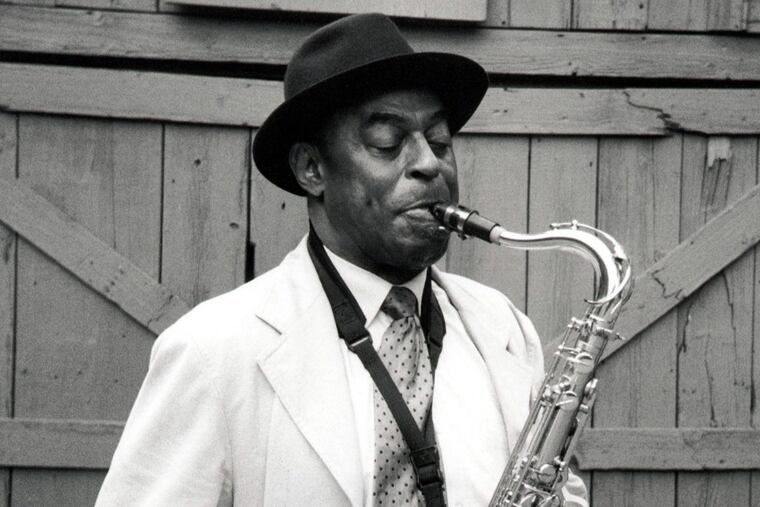Philly jazz great Archie Shepp's 1972 album about African American mass incarceration is scarily relevant today
The Coltrane protege speaks.

Of all the boldly innovative sound that Germantown-raised saxophonist-composer-activist Archie Shepp has created — from his work on fellow Philadelphian John Coltrane's Ascension to his own classics, such as Fire Music, The Magic of Ju-Ju, Kwanza, and I Know About the Life, for starters — one album stands out for its incendiary prescience and holy smarts: 1972's Attica Blues and its 2013 reenvisioned iteration, I Hear the Sound. Recorded after the 1971 riot at the Attica Correctional Facility in Upstate New York in which 43 inmates and hostages were killed, Shepp's mix of free jazz, raw blues, and Blaxploitatve soul took on the horrors of the mass incarceration of African American males with brute but poetic force and poignant reserve. "It was important to do it then to keep it alive, the tragedy of the situation and the injustice of it all," Shepp says from his home in Northampton, Mass. "Things are worse now, though."
Shepp, 80, will play much of that seminal work with gospel jazz singer-pianist Amina Claudine Myers and Darcy James Argue's Creative Large Ensemble at Princeton University on Saturday. The audacious beauty of the night's program is matched only by the rarity of a Shepp live performance — a dark, free, expressive style that the saxophonist says was inspired by his father, his grandmother, and pal Coltrane.
Shepp talks about living on McCallum Street in Germantown, loving his dad's blues banjo licks, the church vocal groups' "battles of song" that his grandmother Mama Rose introduced him to, and gravitating to the piano and clarinet before starting at Germantown High. "It was there I found the most beautiful tenor sounds," he says. "Mama Rose helped me get my first sax. I was attracted to the instrument once I heard really good players."
One of them, Jimmy Heath (of the legendary Philly jazz family) nearly gave young Archie lessons, until Heath wound up in jail.
Coltrane eventually filled that mentor slot for Shepp. He instructed Shepp to practice relentlessly, and "keep my hands closer to the keys to get more velocity, so that my virtuosity would improve." Though Shepp didn't seek lessons from Coltrane until both men lived in New York, in high school he saw Trane at the Red Rooster, a now-defunct jazz club at 52nd and Market. "He only played a few choruses of 'What is This Thing Called Love?,' but he was impressive," Shepp says.
"What I learned from family in Philadelphia then is still important to me now — the harmonies, sure, but the repertory, songs like 'Please Don't Talk about Me When I'm Gone,' " he says. "And the blues. What impressed guys who were more advanced than me then — Lee Morgan, Coltrane — was how I played the blues."
Shepp stresses the feeling and emotion that comes with the truly deep blues. "Remember, my family's roots are in the South," says the Florida-born musician. "Through my father, I learned to sing the blues, vocalize the feelings, before I played it. 'I Hate to See That Evening Sun Go Down.' I learned the words the same time I learned the chords, so I always associated the music with its meanings and vibe. It had a literary and spiritual feeling to me beyond the notes."
Those words led him not only toward vocalizing and reciting the texts of Malcolm X and James Baldwin on his albums, but two of his works, The Communist and Lady Day: A Musical Tragedy found their way to the Off-Broadway stage. "I began to see my work as larger than a musical experience, one that could have social meaning," he says of how jazz could have meaning beyond the notes, that he could "paint a world with another brand of socially active poetry."
Breathing the fire of social activism and consciousness — "another thing I learned from my dad, who was a voracious reader" — Shepp became as much of an avatar of protest music as he was of the burgeoning free jazz movement. By the time he got to Attica Blues, Shepp's focus was razor sharp, and his take on the unfair plight of the black man ("We were never on a level playing field") had been honed and hot-wired for maximum impact.
"It was the time of black activism and white activism, too, of Amiri Baraka writings, of George Jackson's assassination," Shepp says of the protest in the air that drove him to write and produce Attica Blues and, eventually, I Hear the Sound. "Now, the only thing worse than the street violence of the past is the level of victimization — more intense than in my youth, even — coming from the police now, all of it aided by the tone created by our President Trump, who seems to heighten the tension."
Ask Shepp why these powerful variations on a theme capture audiences' imaginations still, and he says their humanity is endearing. "It touches of various aspects of social importance, and, quite frankly, the music has a passionate feeling of communication." Ask him how all that will translate onto the stage in Princeton, with the aid of the gospel-leaning Amina Claudine Myers as his accomplice, and he laughs. "This music can be translated into having religious qualities. The secular can be sacred, too."